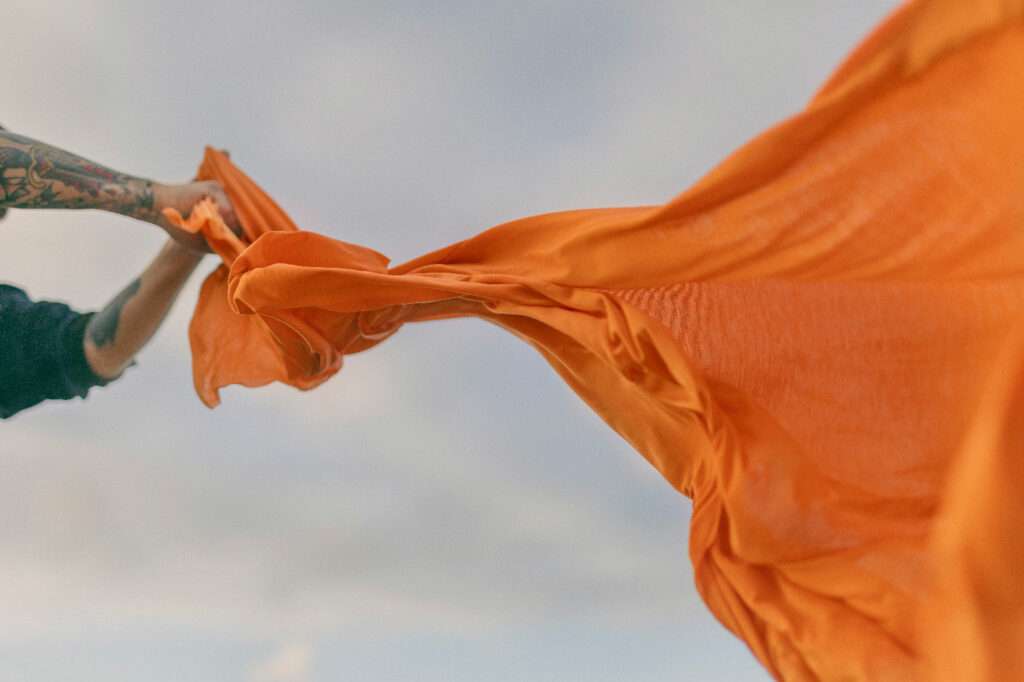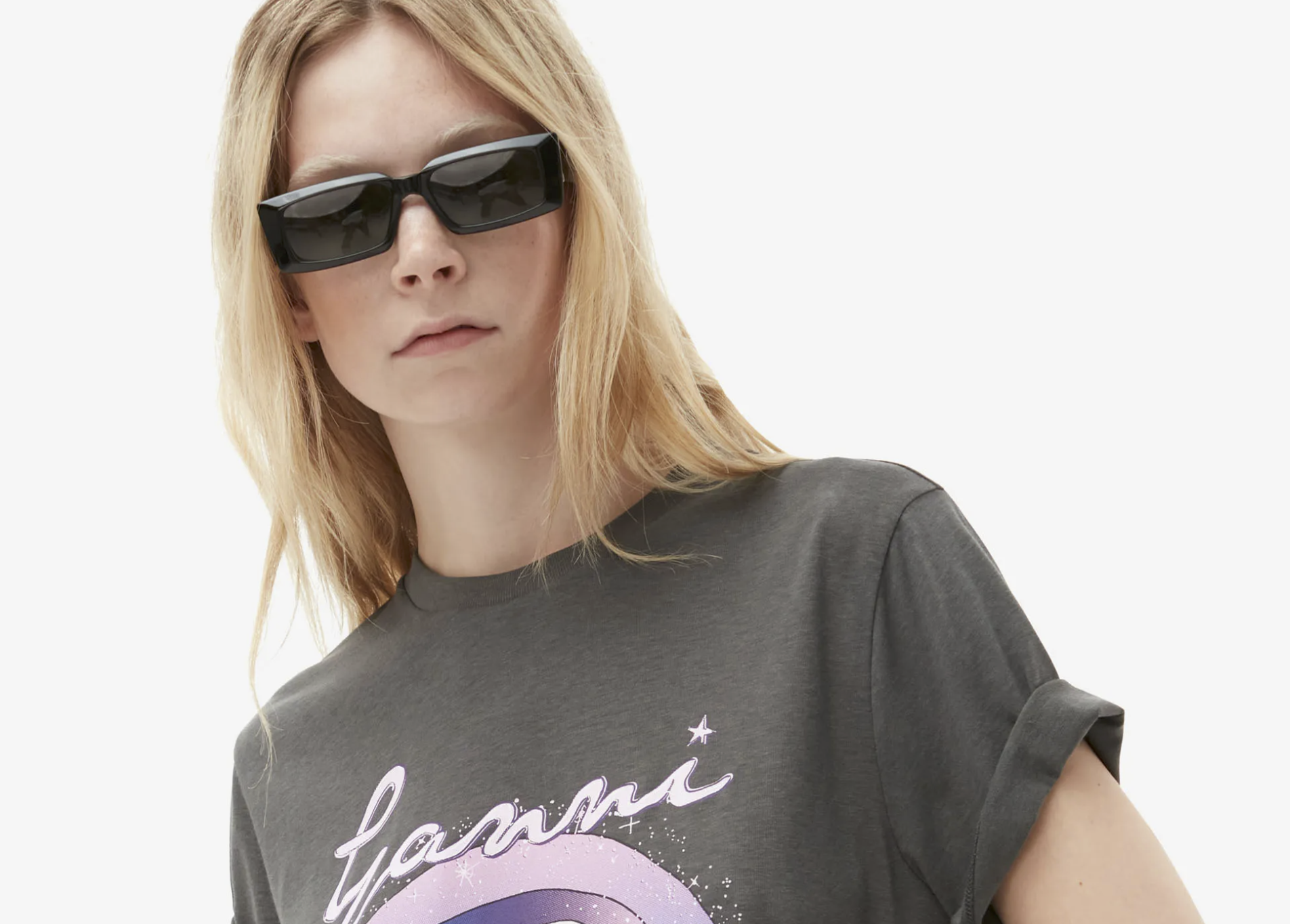On its road to a more responsible future, Ganni has released its first t-shirt made from upcycled cotton waste in a breakthrough material made by Finnish circular fashion technology group, Infinited Fiber Company.
Danish luxury fashion label Ganni has been steadily increasing its sustainability efforts in recent years. Last October, the company pledged to phase out animal skins by next year, comparing the use of leather to cigarette smoking.
“Selling leather products, although highly profitable, will soon be as outdated as smoking on TV,” Ganni founder Nicolaj Reffstrup said in a statement.
The announcement was part of the label’s commitment to becoming more accountable. In 2020, it announced a 44-goal Responsibility Game Plan aimed at targets across People, Planet, Product, and Prosperity to reach by 2023.
The luxury label’s efforts saw it dive into the booming secondhand market over the last year, partnering with French luxury secondhand platform Vestiaire Collective on a vaulted collection as well as launching its own circular secondhand resale platform.
Fabrics of the Future
“Fabrics of the Future,” is Ganni’s initiative aimed at bringing sustainable materials to market. In April, the label said it would bring five Fabrics of the Future to market per year. It’s partnered with Vegea and Circulose as well as Bolt Threads, which produced the vegan mushroom Mylo leather for Stella McCartney and Lululemon.
Now, Ganni is making good on that promise again with its first t-shirt made from a breakthrough fabric innovation, Infinna—a material that’s made from textile waste.

The material was developed by Finland-based Infinited Fiber Company. The t-shirt debuted as part of Ganni’s Spring/Summer 2023 collection presented during Copenhagen Fashion Week. It is a proof of concept test, but Ganni says the plan is to use the fiber in forthcoming collections.
“Infinna is an exciting development that not only diverts fabric waste from going to landfill but actually increases its value,” Ganni founder Nicolaj Reffstrup said in a statement. “Fabric innovations will play a crucial role in making fashion more circular but for that to happen brands need to place bets and take risks, which is why we’re committed to researching and investing in breakthrough fabric innovations through our Fabrics of the Future initiative.”
The fiber is made from textile waste that Infinited says will otherwise end up in landfills or be burned. It sources the waste material from factories in Finland. The cotton waste is then broken down to a molecular level and “reborn” as the new Infinna material, which can undergo the same process at the end of its lifecycle, creating a closed loop. Ganni says it has the look and feel of cotton but with a smaller environmental footprint compared to virgin cotton.
Earlier this week, outdoor ethical clothing and gear company Patagonia launched its own version of shirts using Innova’s textile waste and Fair Trade certified labor.
“The cotton fabric in our Tee-Cycle tees has already been out in the world, so there’s no need to extract anything new to make them,” the company said in a statement. “Instead, we take the old tees you bring us and use them to create Infinna fiber, combine it with factory cotton scraps, and make brand-new shirts out of 100 percent recycled materials.”
Closing the fashion loop
“If we want to successfully tackle the major ecological issues we are facing, we have to work even closer together and include even more people in our work,” Reffstrup wrote in the label’s 2021 sustainability impact report.

Ninety-seven percent of Ganni’s SS23 collection shown at Copenhagen Fashion Week features responsible materials where at least 50 percent of a garment is certified organic, made with low impact or recycled materials. The collection also features shoes made with Fabrics of the Future Vegea’s grape skin leather.
The annual fashion event itself is increasing its sustainability. Earlier this week it joined Amsterdam, Helsinki, and Oslo Fashion Week in banning fur at its shows. In January, it announced it was adding more aggressive sustainability targets following milestone achievements. This year, the event is aiming to reduce its climate impact by 50 percent and achieve zero waste.
Read about how Edify is spotlighting sustainable fashion in its collections.


